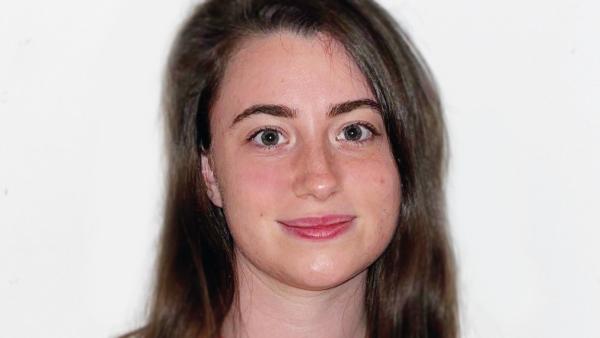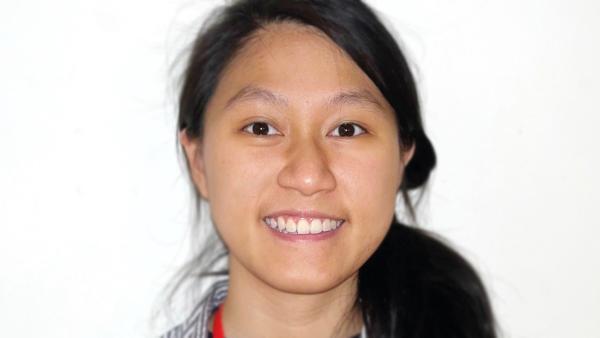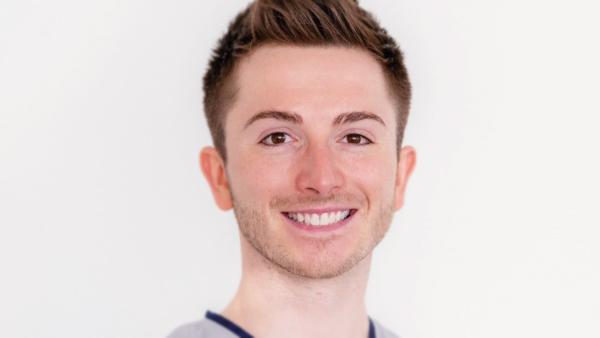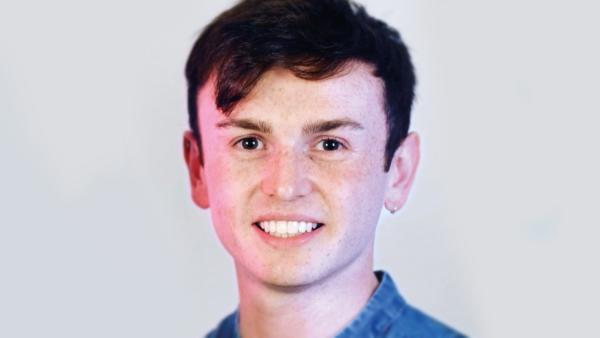Physiotherapy students tell Catherine Turnbull how CSP membership offers them valuable transferable skills to prepare for successful future careers

Kirsty Peinelt, graduate student and CSP North East regional network member
After just graduating with her BSc Physiotherapy at Teesside University Kirsty Peinelt knows that joining her regional network as a student rep in the North East has helped her step into her first job with confidence.

In fact, the keen long-distance runner is sprinting ahead. She’s now on rotation in Derby in her home county and plans to join the East Midlands network.
‘I was a course rep for three years and when the pandemic hit an educator suggested that I join the regional network and I said I would give it a go.’
She knows that many students worry about the level of responsibility and time required. ‘It is a concern when you are studying and on placement, but it need not be time consuming.
‘You can just spend a few hours a month as a rep but it brings huge benefits. Once you get into the role you pick up how to communicate effectively – as physios we are good at doing that.’
She took the lead in developing the North East regional network Instagram page. ‘I posted updates, promoted events and engaged with other physios. This extended my networking range from communicating with my cohort, apprentices and master’s students, to qualified physios across the profession.’
‘I think active CSP membership raises your profile and makes you stand out. It speaks about your personality and how willing you are to take a leap. When I am looking for future leadership roles, this will give me confidence and I think stand me in good stead.
’She feels much more prepared for her first workplace role.
Through being an active member, I’ve gained an insight into the profession, built relationships and team working skills, as well as how to communicate better and be more organised and time efficient.
Peinelt gained more valuable assets when she attended ARC, where she was “wowed” by the scale of the conference and the opportunities.
‘I took a fellow student, Belle, with me to ARC and we took over the CSP students’ social media to share the debates with video coverage.’
Leung Yi Ting (Belle), a graduate student

Like Kirsty, Belle has just graduated from Teesside University.
When she was asked to attend ARC, the experience not only gave her networking opportunities, but a greater understanding of the profession.
I am more aware of what the real struggles are that are being faced in the workplace from physios in different roles and heard useful suggestions on how to make a positive change.
‘The conference was great for networking and socialising and building more rapport with influential colleagues. I was invited as a student guest, and it helped with my confidence.’
It was important for her to meet staff in person after restricted work placements during the Covid-19 pandemic. ‘I volunteered in 2020 for my first virtual physio conference. It helped me explore what this almost new world of physiotherapy was all about.’
She joined the CSP three years ago. She has found the physiotherapy pocketbook immensely helpful. ‘It joined the gaps for me during my studies. The CSP ePortfolio kept me up to date with my continuing professional development and Frontline keeps me better informed too.’
Christopher Gibson, student and DisAbility networks member, ambassador for CSP’s Stronger My Way online hub

In his second year at Glasgow Caledonian University, Christopher Gibson is a member of several CSP networks, but actively involved with the student and DisAbility networks.
He is on his second placement – in MSK Outpatients in NHS Lanarkshire – where he has been helping to spread the word about the CSP’s Stronger My Way online hub.
‘I’ve been highlighting the benefits of strength training and the resources available online to all visitors attending the health centre by placing laminated copies of the Stronger My Way campaign posters at different locations there.’
‘My responsibility is foremost to promote the benefits that strength training can have on not just my patients’ health, but that of everyone I come into contact with.
‘I also aim to spread the word of the CSP’s Stronger My Way campaign and the resources available online for both student and qualified physiotherapists, fellow health care professionals and the general public.’
He believes that the campaign materials have given him a means to start conversations with new people and staff – his practice educator, other physiotherapists and AHP staff whilst on placement.
‘I have also found the evidence-based resources available beneficial for supporting my clinical reasoning and confidence in prescribing strength training for various populations.
Being an ambassador has helped me to develop good relationships with patients as it empowers them to undertake strength training themselves and choose the exercises they want to do.
He now feels empowered through volunteering for CSP projects and the transferable skills he has gained.
These include project management, inter-professional team working and gaining the ability to articulate scientific and medical terminology in layman’s terms.
Samuel Hopkins, LGBTQIA+ Network committee member

After finishing his first year of study at King’s College London, Samuel is about to start his first placement, on a rehab ward at a community hospital.
He’s hoping for a respiratory placement during his studies as he found those elements of the course fascinating but is trying to stay open-minded about all the options. ‘I am hoping that my placements will tell me more about what I enjoy and where my skills are best suited. I love that physio has so many different avenues.’
It can be a daunting step to enter the workplace for the first time, however he has been reassured by the insight into the profession and skills he has gained through joining a CSP network.
Being able to see LGBTQIA+ representation within the physiotherapy profession through the network has reassured me that the world of physiotherapy has its own community that are here to look out for one other,’ he says.
‘I’ve definitely grown in confidence since joining the LGBTQIA+ Network. Having the opportunity to attend the Annual Representative Conference (ARC) and speak on behalf of the network was also a great chance to network and meet other CSP members.
Like many students, he faced extra pressure by starting his studies during the pandemic. ‘My early involvement with the CSP was invaluable and gave me reference points and a broader perspective, whilst it was difficult to have work placements. I saw an interesting Frontline article about the benefits, which encouraged me to join.
‘This has led to me hearing from physios across the country via online events, before I was able to go ARC in person and meet people face to face.’
He is involved in planning an event for the start of the next academic year for physiotherapy students who identify with one or more of the diversity networks.
‘I hope that it can help create a sense of community for current LGBTQIA+ students across the UK, and to create a visibility that helps potential future LGBTQIA+ students see themselves within the profession.
‘It’s been a fantastic opportunity to meet students from other diversity networks and hear about their experiences at university and on placement. There’s a lot of crossovers of experiences between them and working on the project has taught me a lot about allyship and how we can support each other.’
Samuel has also gained valuable insights into the organisational structure of the CSP and how it operates and has discovered more about the issues that physiotherapists and service users face in the daily work setting.
More information
- Students who want to get involved in local activity via their CSP regional network or country board should email cre@csp.org.uk
- And if you would like to get involved with the CSP BAME, DisAbility or LGBTQIA+ Networks please email diversity@csp.org.uk
Find Out More
Number of subscribers: 1
